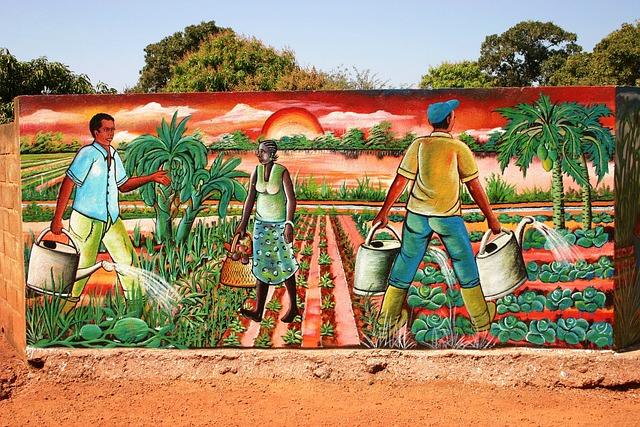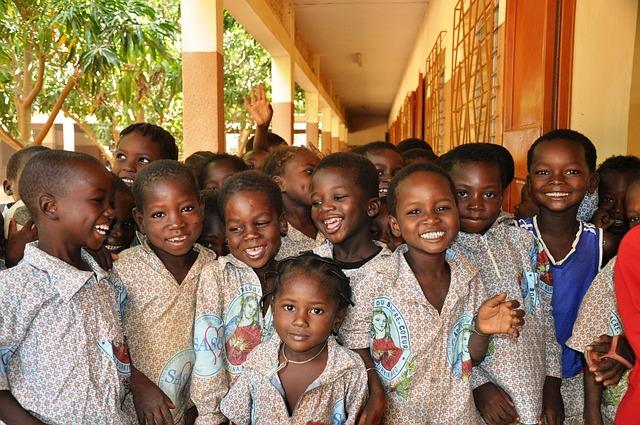In a significant development within the West African nation, Burkina Faso’s military regime has initiated discussions to reinstate the death penalty, a move that has ignited a wave of debate over human rights and judicial practices in the country. A government source disclosed this intention, signaling a potential shift in the government’s approach to crime and punishment as it grapples with escalating security challenges and political instability. As the regime seeks to assert control amidst a backdrop of rising violence and militant activities, this proposed reintroduction of capital punishment raises critical questions about its implications for justice, governance, and the rule of law in Burkina Faso. This article delves into the motivations behind this controversial proposal,the reactions from various stakeholders,and the broader context of human rights in the region.
Burkina Faso Military regime Proposes Reinstating the Death Penalty
In a significant policy shift, the military government of Burkina Faso is reportedly considering the reinstatement of the death penalty, a measure that has raised eyebrows both domestically and internationally. Sources within the government indicate that this move is intended to address rising levels of crime and insecurity in the country, notably in the wake of ongoing violence attributed to extremist groups. Proponents argue that capital punishment may serve as a deterrent, while opponents warn against its potential for human rights violations and the irreversible consequences of wrongful convictions.
the proposed reinstatement reflects a broader trend among some military regimes in Africa, where governance challenges have led to calls for harsher penalties as a means of restoring law and order. As the debate unfolds,key stakeholders—including human rights organizations,legal experts,and civil society groups—are urged to weigh in on this critical issue. The government has yet to release a detailed framework for how the death penalty would be applied, but the implications of such a policy are likely to spark contentious discussions about justice, morality, and the future of human rights in Burkina Faso.
Context and Rationale Behind the Proposal from Government Sources
The proposal to reinstate the death penalty in Burkina Faso has emerged amidst a backdrop of escalating security challenges and public unrest. Government sources indicate that the military regime believes implementing capital punishment could serve as a strong deterrent against violent crime and acts of terrorism, which have surged in recent years. Key reasons cited for the proposal include:
- Increasing Violent crime: Authorities link the rise in crime rates to a deterioration of law and order, necessitating stringent measures.
- Public Sentiment: There is a growing demand among citizens for harsher penalties against those involved in heinous acts, reflecting a shift in societal attitudes towards crime and punishment.
- Security Concerns: The regime argues that capital punishment could reinforce national security efforts, especially against extremist groups operating in the region.
Critics, though, express concern about the implications of reinstating such a severe measure. They argue that it may not address the root causes of violence and could lead to further human rights abuses. Even as debates swirl, stakeholders stress the need for thorough reform in the justice system and local governance to foster stability. The table below summarizes the different perspectives on the proposal:
| Outlook | Arguments For | Arguments Against |
|---|---|---|
| Government | Deterrent against crime,public support | Potential for miscarriages of justice,ethical implications |
| Human Rights Advocates | not Applicable | Infringement on the right to life,impact on vulnerable populations |
| Public Opinion | Calls for stricter penalties | Lack of evidence supporting effectiveness of death penalty |
Implications for Human Rights in Burkina Faso and the International Response
The proposed reinstatement of the death penalty by Burkina Faso’s military regime raises significant concerns regarding human rights in a nation already grappling with political instability and violence. Advocates fear that this move could exacerbate existing issues within the country’s judicial system, potentially leading to increased violations of fundamental rights, including the presumption of innocence and the right to a fair trial. Critics argue that reinstating capital punishment may disproportionately affect marginalized communities, raising alarms about discrimination and abuse of power by authorities.Furthermore, the potential for wrongful convictions looms large, particularly in a context where judicial processes might lack the necessary oversight and integrity.
Internationally, the response to Burkina Faso’s intentions could escalate tensions between the military government and global human rights organizations. Several countries and bodies, such as the European Union and United nations, are likely to scrutinize these developments closely, which may lead to diplomatic sanctions or financial repercussions.Advocacy groups are preparing to mobilize grassroots campaigns aimed at pressuring the military leadership to reconsider this regressive step. If successful, such initiatives could result in a unified stance against the death penalty, reinforcing global norms that favor rehabilitation over retribution. Below is a summary of possible international responses:
| International Body | Potential Action |
|---|---|
| European Union | Diplomatic Sanctions and Condemnation |
| United Nations | Resolution Against Death Penalty |
| Human Rights Watch | Global Awareness Campaigns |
| Amnesty International | Mobilization for Advocacy |
Comparative Analysis of Death Penalty Practices in African Nations
As the Burkina Faso military regime considers reinstating the death penalty, it is essential to examine how this move aligns with or diverges from the practices of other African nations. While some countries, like South Africa and kenya, have abolished capital punishment, viewing it as a violation of human rights, others maintain it as a tool for deterrence and justice. The dynamics of death penalty practices across the continent can often be attributed to historical, political, and socio-economic factors influencing government decisions.
To understand the broader implications of this resurgence, a comparative analysis of various African nations reveals diverse stances on capital punishment:
| Country | Status on Death Penalty | Last Executions |
|---|---|---|
| South Africa | Abolished in 1997 | N/A |
| Botswana | Active; used sparingly | 2012 |
| Nigeria | Active; frequent use | 2021 |
With varied practices and legal frameworks, the discussion surrounding the death penalty in Africa continues to evolve, particularly as regimes like Burkina Faso’s re-evaluate their positions. The potential reinstatement of capital punishment may not only reflect internal security concerns but could also place Burkina Faso’s policies at odds with international human rights norms. As these discussions unfold, it remains critical to monitor the responses from civil society and the international community, especially given the continent’s diverse legal landscapes.
Potential Impact on National Security and Crime deterrence
The potential reinstatement of the death penalty in Burkina Faso could significantly alter the landscape of national security. Proponents of the measure argue that it serves as a necessary tool for the state to assert control over rising crime rates,particularly in a region grappling with security challenges such as terrorism,violent extremism,and organized crime.By implementing capital punishment, the military regime might aim to demonstrate a commitment to law and order, signaling to both citizens and potential offenders that severe consequences await those who violate the law. The expectation is that this could lead to a decrease in criminal activities by instilling a heightened sense of fear among would-be perpetrators.
however, the introduction of the death penalty raises critical questions regarding its effectiveness in crime deterrence. Evidence from various jurisdictions around the globe suggests mixed outcomes, leading to ongoing debates among experts and policymakers. Key considerations include:
- Impact on crime rates: Does the implementation actually lead to a measurable decline in serious crimes?
- Public perception: How does society perceive justice in the face of capital punishment, and does this influence trust in law enforcement?
- Human rights implications: What are the ethical ramifications of reinstating such a punishment in a country with a recent history of human rights abuses?
Moreover, it remains essential to evaluate the potential ramifications on national and international levels. The global trend has been toward the abolition of the death penalty, with many viewing it as an outdated form of punishment. Burkina Faso’s move to restore capital punishment may draw criticism and could strain diplomatic relations, particularly with nations that prioritize human rights. Navigating these complexities will be pivotal as the military regime considers its future direction.
Recommendations for Civil Society and International Organizations
considering the recent developments regarding the potential reinstatement of the death penalty in Burkina Faso, civil society and international organizations are urged to adopt a proactive stance to advocate for the protection of human rights and the rule of law. Key actions include:
- Mobilizing public awareness campaigns to educate citizens about the implications of capital punishment and its impact on societal justice.
- Promoting dialog between the military regime and various stakeholders, including legal experts and human rights defenders, to foster an surroundings of accountability.
- Collaborating with local NGOs to monitor government actions and ensure clarity in decision-making processes related to legal reforms.
Furthermore, international organizations should leverage their diplomatic influence to engage with the Burkina Faso government, emphasizing a commitment to international human rights standards. Specific recommendations include:
- Issuing statements that explicitly oppose the death penalty and highlight its effects on marginalized communities.
- Developing strategic partnerships with regional bodies to amplify advocacy efforts in West africa.
- Facilitating training programs for local law enforcement and judicial personnel to reinforce a justice system that aligns with human rights principles.
in summary
the Burkina Faso military regime’s proposal to reinstate the death penalty has ignited significant debate within both the country and the international community. As security challenges continue to escalate amid ongoing conflicts and rising violence, the government contends that capital punishment could serve as a deterrent and a means of restoring order. However, human rights advocates warn that such measures may exacerbate existing issues and undermine the principles of justice. As Burkina Faso navigates this pivotal moment, the implications of this decision will undoubtedly ripple through its societal and political landscape.The world will be watching closely as developments unfold in the weeks and months ahead, calling into question the future of human rights and governance in the region.

